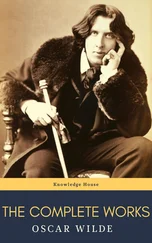If I last in this service, you must case me in leather.
Exit.
Luc.
Fie, how impatience low’reth in your face!
Adr.
His company must do his minions grace,
Whilst I at home starve for a merry look:
Hath homely age th’ alluring beauty took
From my poor cheek? Then he hath wasted it.
Are my discourses dull? Barren my wit?
If voluble and sharp discourse be marr’d,
Unkindness blunts it more than marble hard.
Do their gay vestments his affections bait?
That’s not my fault, he’s master of my state.
What ruins are in me that can be found,
By him not ruin’d? Then is he the ground
Of my defeatures. My decayed fair
A sunny look of his would soon repair.
But, too unruly deer, he breaks the pale,
And feeds from home; poor I am but his stale.
Luc.
Self-harming jealousy—fie, beat it hence!
Adr.
Unfeeling fools can with such wrongs dispense:
I know his eye doth homage otherwhere,
Or else what lets it but he would be here?
Sister, you know he promis’d me a chain;
Would that alone a’ love he would detain,
So he would keep fair quarter with his bed!
I see the jewel best enamelled
Will lose his beauty; yet the gold bides still
That others touch and, often touching, will
Where gold; and no man that hath a name
By falsehood and corruption doth it shame.
Since that my beauty cannot please his eye,
I’ll weep what’s left away, and weeping die.
Luc.
How many fond fools serve mad jealousy?
Exeunt.
¶
Enter Antipholus Erotes [of Syracuse].
S. Ant.
The gold I gave to Dromio is laid up
Safe at the Centaur, and the heedful slave
Is wand’red forth, in care to seek me out.
By computation and mine host’s report,
I could not speak with Dromio since at first
I sent him from the mart! See, here he comes.
Enter Dromio [of] Syracusa.
How now, sir, is your merry humor alter’d?
As you love strokes, so jest with me again.
You know no Centaur? You receiv’d no gold?
Your mistress sent to have me home to dinner?
My house was at the Phoenix? Wast thou mad,
That thus so madly thou didst answer me?
S. Dro.
What answer, sir? when spake I such a word?
S. Ant.
Even now, even here, not half an hour since.
S. Dro.
I did not see you since you sent me hence
Home to the Centaur with the gold you gave me.
S. Ant.
Villain, thou didst deny the gold’s receipt,
And toldst me of a mistress, and a dinner,
For which I hope thou feltst I was displeas’d.
S. Dro.
I am glad to see you in this merry vein.
What means this jest? I pray you, master, tell me.
S. Ant.
Yea, dost thou jeer and flout me in the teeth?
Think’st thou I jest? Hold, take thou that, and that.
Beats Dromio.
S. Dro.
Hold, sir, for God’s sake! Now your jest is earnest,
Upon what bargain do you give it me?
S. Ant.
Because that I familiarly sometimes
Do use you for my fool, and chat with you,
Your sauciness will jest upon my love,
And make a common of my serious hours.
When the sun shines, let foolish gnats make sport,
But creep in crannies, when he hides his beams:
If you will jest with me, know my aspect,
And fashion your demeanor to my looks,
Or I will beat this method in your sconce.
S. Dro. Sconce call you it? So you would leave battering, I had rather have it a head. And you use these blows long, I must get a sconce for my head, and insconce it too, or else I shall seek my wit in my shoulders. But I pray, sir, why am I beaten?
S. Ant. Dost thou not know?
S. Dro. Nothing, sir, but that I am beaten.
S. Ant. Shall I tell you why?
S. Dro. Ay, sir, and wherefore; for they say, every why hath a wherefore.
S. Ant.
Why first—for flouting me, and then wherefore—
For urging it the second time to me.
S. Dro.
Was there ever any man thus beaten out of season,
When in the why and the wherefore is neither rhyme nor reason?
Well, sir, I thank you.
S. Ant. Thank me, sir, for what?
S. Dro. Marry, sir, for this something that you gave me for nothing.
S. Ant. I’ll make you amends next, to give you nothing for something. But say, sir, is it dinner-time?
S. Dro. No, sir, I think the meat wants that I have.
S. Ant. In good time, sir: what’s that?
S. Dro. Basting.
S. Ant. Well, sir, then ’twill be dry.
S. Dro. If it be, sir, I pray you eat none of it.
S. Ant. Your reason?
S. Dro. Lest it make you choleric, and purchase me another dry basting.
S. Ant. Well, sir, learn to jest in good time—there’s a time for all things.
S. Dro. I durst have denied that before you were so choleric.
S. Ant. By what rule, sir?
S. Dro. Marry, sir, by a rule as plain as the plain bald pate of Father Time himself.
S. Ant. Let’s hear it.
S. Dro. There’s no time for a man to recover his hair that grows bald by nature.
S. Ant. May he not do it by fine and recovery?
S. Dro. Yes, to pay a fine for a periwig, and recover the lost hair of another man.
S. Ant. Why is Time such a niggard of hair, being (as it is) so plentiful an excrement?
S. Dro. Because it is a blessing that he bestows on beasts, and what he hath scanted [men] in hair he hath given them in wit.
S. Ant. Why, but there’s many a man hath more hair than wit.
S. Dro. Not a man of those but he hath the wit to lose his hair.
S. Ant. Why, thou didst conclude hairy men plain dealers without wit.
S. Dro. The plainer dealer, the sooner lost; yet he loseth it in a kind of jollity.
S. Ant. For what reason?
S. Dro. For two—and sound ones too.
S. Ant. Nay, not sound, I pray you.
S. Dro. Sure ones then.
S. Ant. Nay, not sure, in a thing falsing.
S. Dro. Certain ones then.
S. Ant. Name them.
S. Dro. The one, to save the money that he spends in [tiring]; the other, that at dinner they should not drop in his porridge.
S. Ant. You would all this time have prov’d there is no time for all things.
S. Dro. Marry, and did, sir: namely, [e’en] no time to recover hair lost by nature.
S. Ant. But your reason was not substantial, why there is no time to recover.
S. Dro. Thus I mend it: Time himself is bald, and therefore, to the world’s end, will have bald followers.
S. Ant. I knew ’twould be a bald conclusion. But soft, who wafts us yonder?
Enter Adriana and Luciana.
Adr.
Ay, ay, Antipholus, look strange and frown,
Some other mistress hath thy sweet aspects:
I am not Adriana, nor thy wife.
The time was once, when thou unurg’d wouldst vow
That never words were music to thine ear,
That never object pleasing in thine eye,
That never touch well welcome to thy hand,
That never meat sweet-savor’d in thy taste,
Unless I spake, or look’d, or touch’d, or carv’d to thee.
How comes it now, my husband, O, how comes it,
That thou art then estranged from thyself?
Читать дальше












